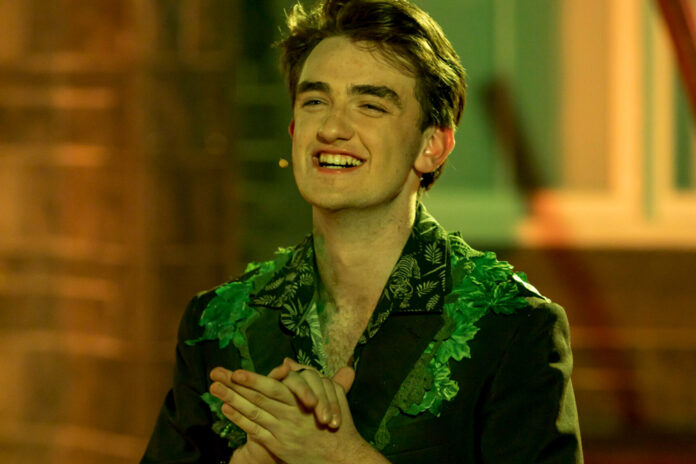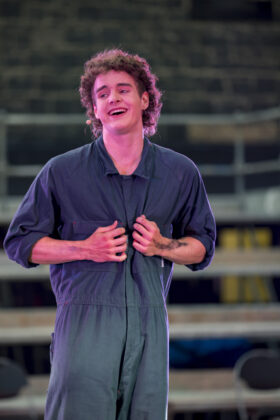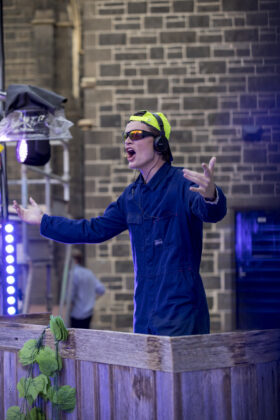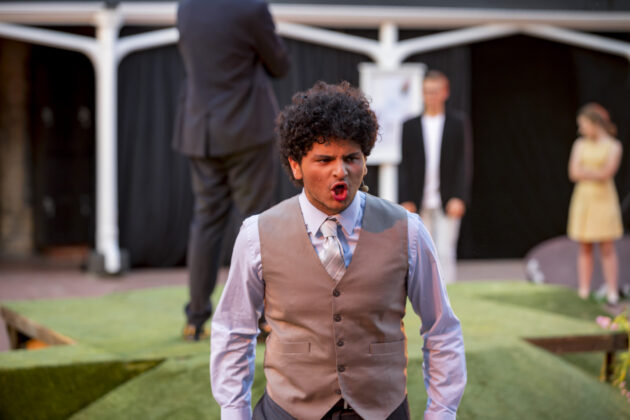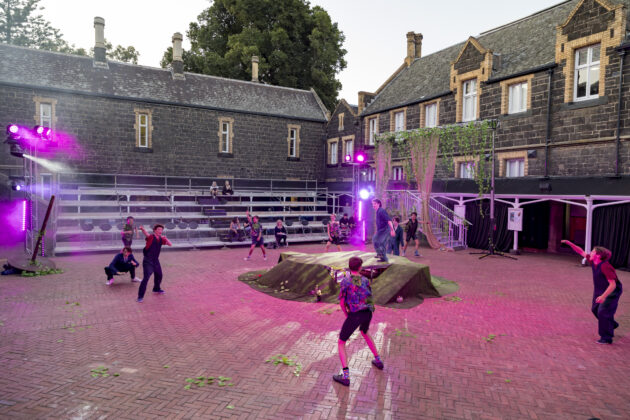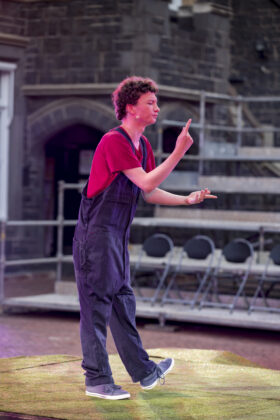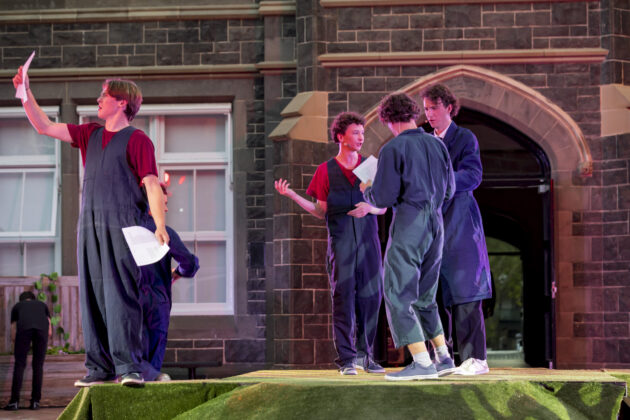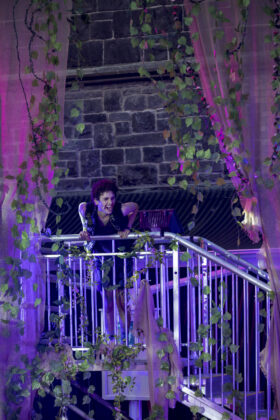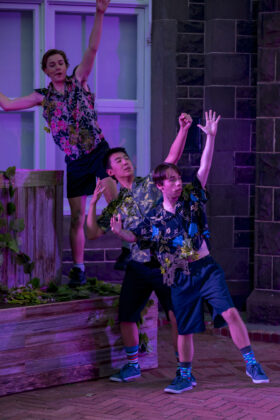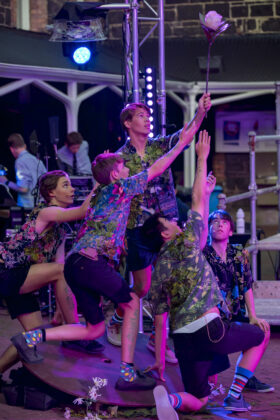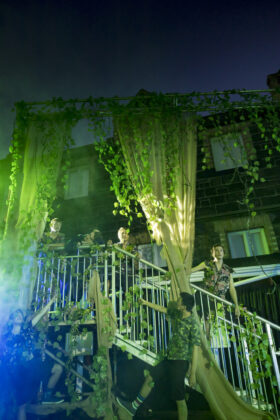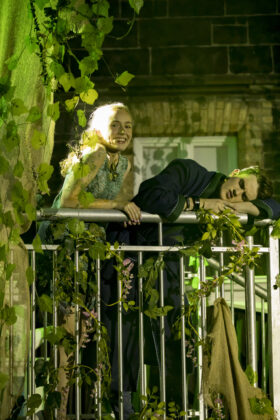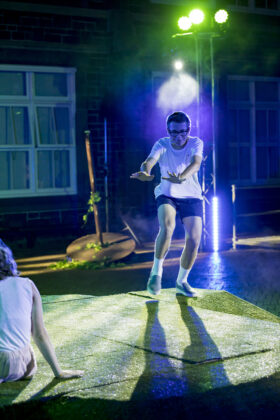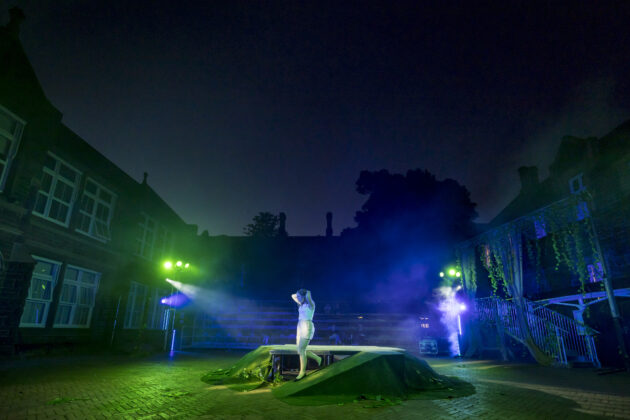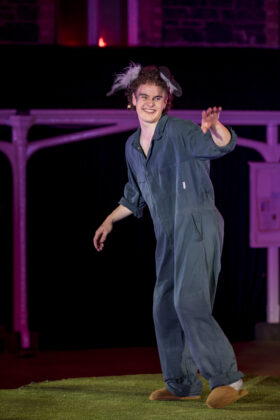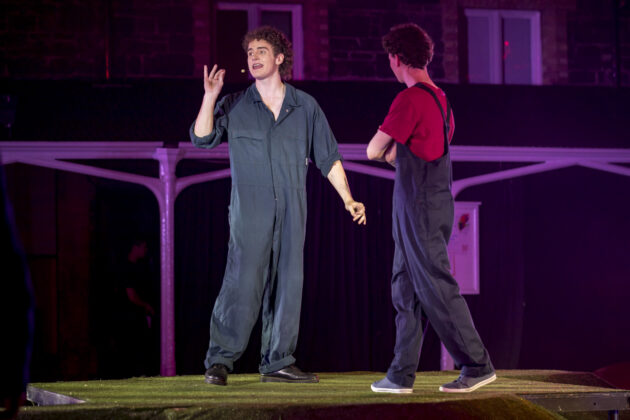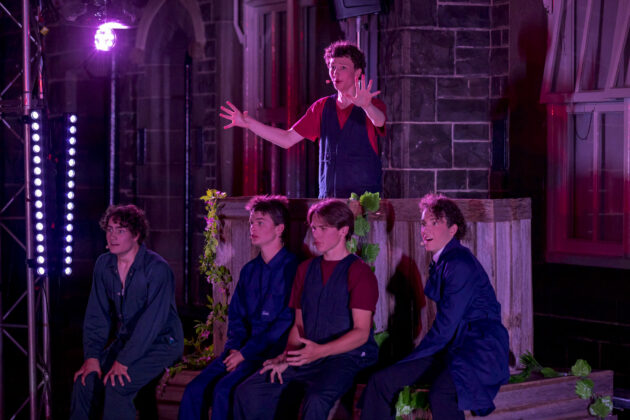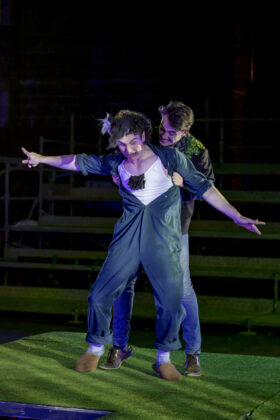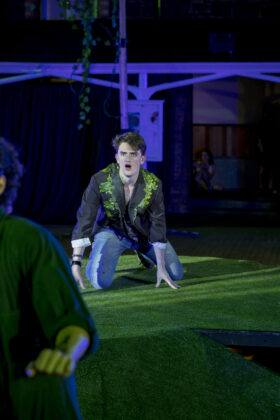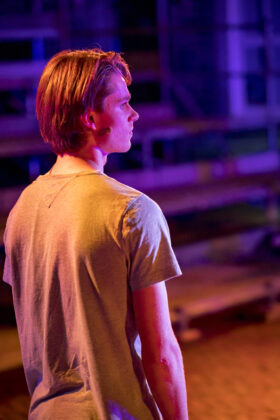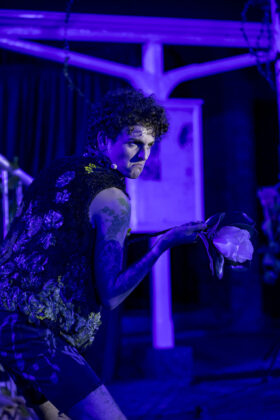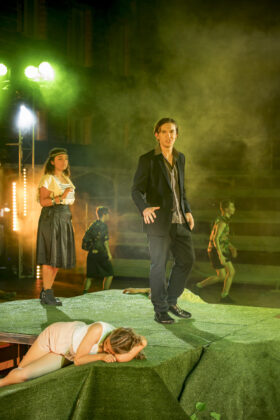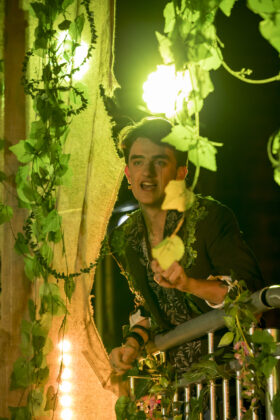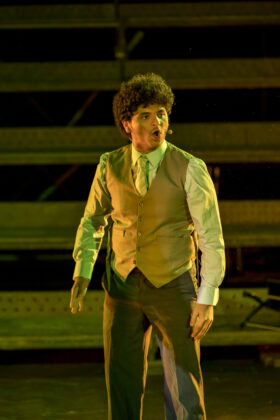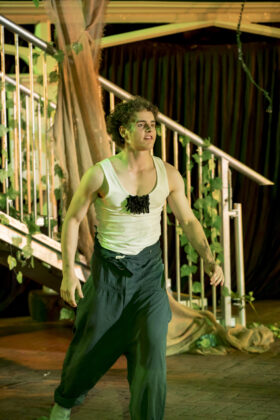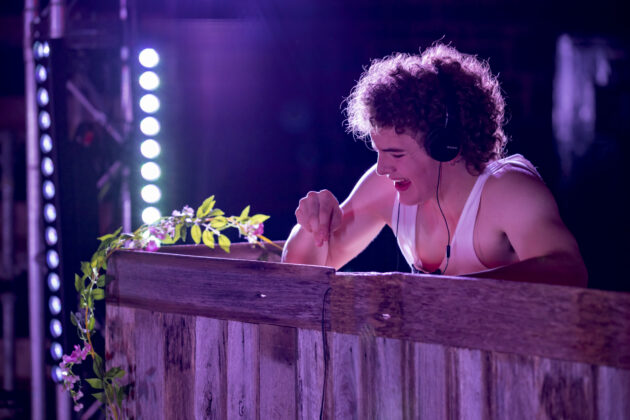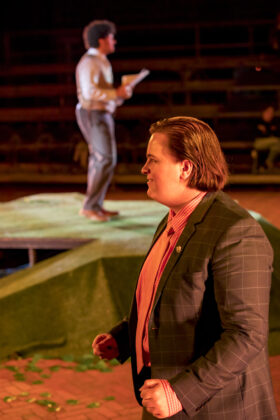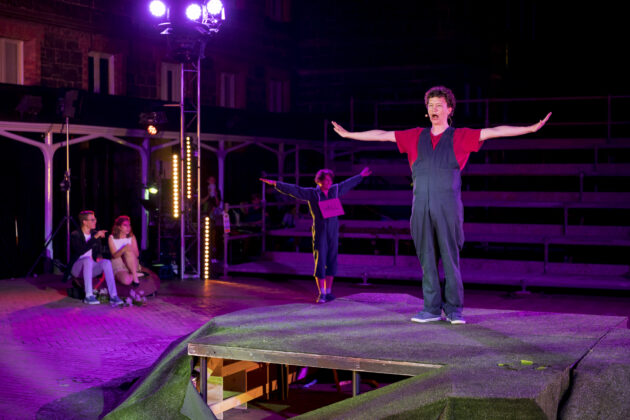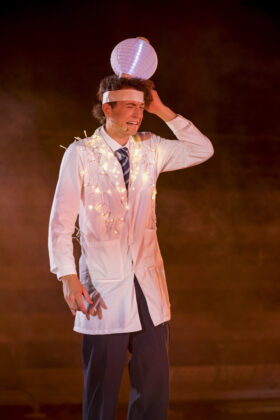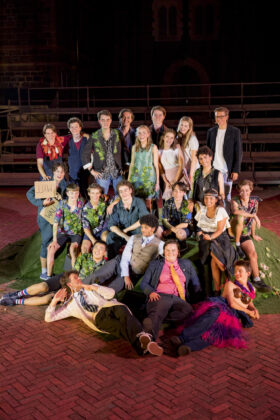This year’s Quad Play saw the return of Shakespeare’s A Midsummer Night’s Dream for its fourth season, making it the most performed play in the history of Quad productions. All three nights’ performances were sold out too, making it one of the most popular shows in this series.
There were some changes this year, however. The most obvious for audiences was the antiphonal seating which saw the action set in the middle of the Quad rather than in the Bromby House corner. And a change in Director – with Belinda Annan taking the reins from Sharon Mulready (on long service leave) – brought a shift in performance from focussing on text and voice, to emphasising body and space.
Much of the comedy in A Midsummer Night’s Dream emerges from bringing together groups of people who are usually separate: the upper-class Athenian nobility, the lower-class workmen or “mechanicals”, and of course the fairies of the forest. We might add male and female, to complete the set of oppositions that Shakespeare exploits.
This is a classic ensemble play, which evenly divides stage time amongst the large cast. Fittingly, the honours were shared by the actors in a strong collective performance.
The lovers were well matched, with Will Flintoft (Year 11) and Sam Ackland-Evans (Year 12) bringing effective passion and indignation to the roles of Lysander and Demetrius.
As the leader of the mechanicals, Angus Billson (Year 11) found a nice balance of officious and frustration in trying to organise his fellow would-be actors. Will Blazey (Year 12) clearly enjoyed himself in the inimitable role of Bottom, the man who wants to play every role including the props.
Ben Bonnici (Year 12) made a suitably fey Puck, tripping lightly around the stage bringing mischief and fun.
Director Belinda Annan brought a contemporary twist to the character of Oberon, King of the Fairies, turning the role on its head, so that Lachlan Hughes (Year 12) found himself the victim of the play’s central joke, rather than its perpetrator. This was a nice inversion of traditional power and gender roles, giving Titania’s character greater scope. The girls from MGGS all contributed effectively to the performance.
Whatever power the King and Queen of the fairies might have, however, they were not able to control the weather, and on opening night the rain came tumbling down. But as the adage demands the show must go on, and so cast (and audience!) stuck it out grimly in conditions that would see cricketers racing for the pavilion. The wise provision of blankets for the audience was an innovation all hope to see become a tradition.
Martin Ball
